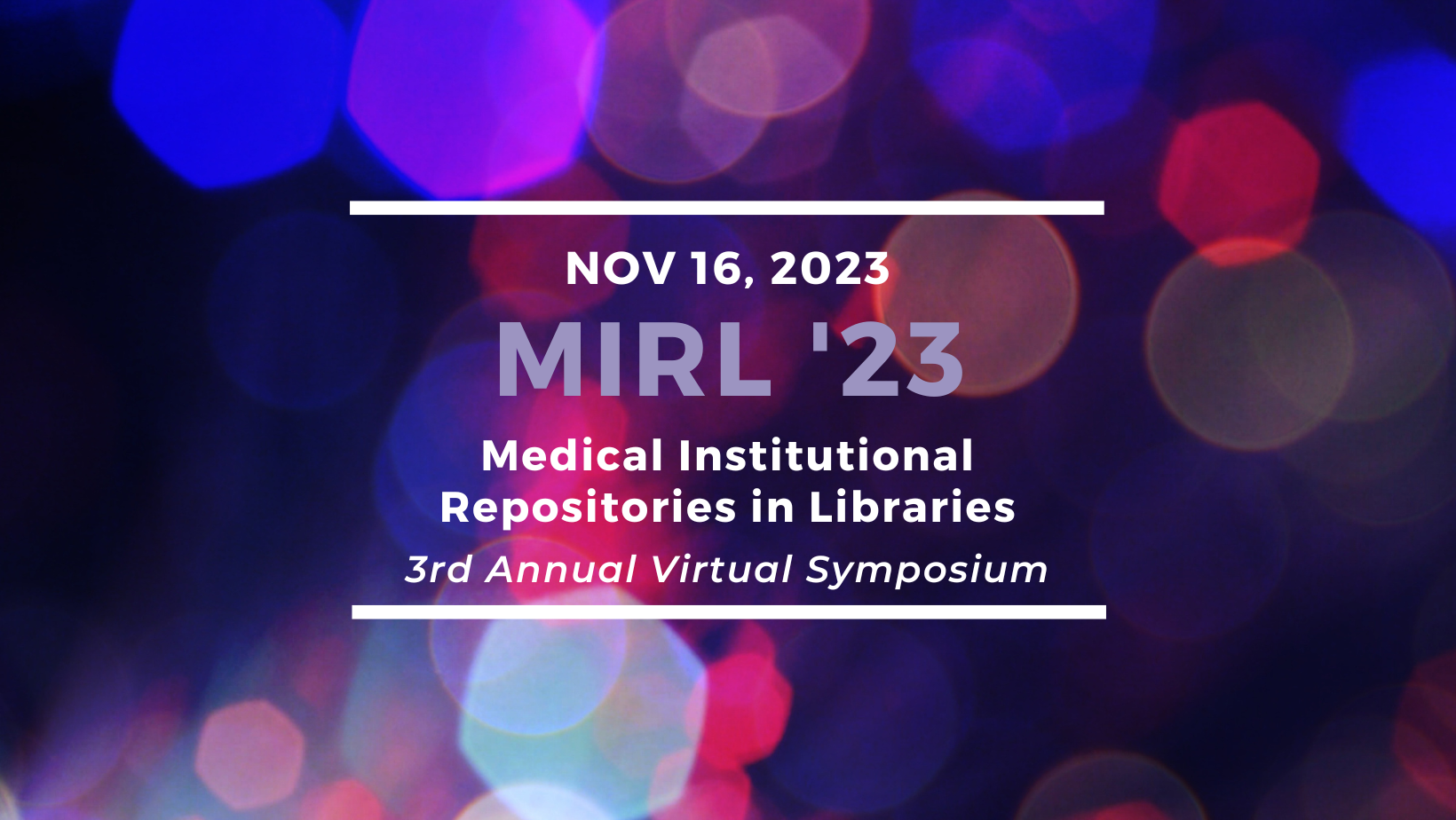Presentation Type
Lightning Talk
Date
2023-11-16
Description
Developing an efficient and cost-effective method for providing access to legacy print theses and dissertations is a challenge faced by many libraries that serve medical schools and other academic health science programs. The significant staff time and financial cost associated with systematically digitizing and providing complete online access to print theses and dissertations can be problematic given the potentially limited return on that investment as reflected in patron use statistics and other metrics. This presentation will describe how a medical school library improved the discoverability and accessibility of its legacy print theses and dissertations by implementing a cost-effective, selective digitization workflow that leveraged existing metadata and limited staff time. This workflow involved extracting and transforming existing metadata from the library catalog, selectively digitizing excerpts (title page, abstract, table of contents, and committee information) of all the theses and dissertations, and utilizing batch upload capabilities to add new descriptive records to the library's institutional repository. In addition to improving the discoverability of these important scholarly resources, the medical library intends to implement a "scan-on-demand" service model in which patrons who are interested in obtaining the full text of a thesis or dissertation can do so by contacting the library directly. To date, the library has added descriptive records for more than 500 theses/dissertations to its institutional repository and has seen a tremendous return on its modest investment in the form of thousands of new page views and downloads within a few months.
Keywords
Institutional repositories; digitization; theses; dissertations
Open Access
1
Rights and Permissions
Copyright © 2023 The Author.
Repository Citation
Pieczko, Brandon, "Finding the Golden Mean: An Efficient Model for Improving Discovery and Access for Legacy Theses and Dissertations in a Medical Library’s Institutional Repository" (2023). Medical Institutional Repositories in Libraries (MIRL). 13.
https://hsrc.himmelfarb.gwu.edu/mirl/2023/program/13
Finding the Golden Mean: An Efficient Model for Improving Discovery and Access for Legacy Theses and Dissertations in a Medical Library’s Institutional Repository
Developing an efficient and cost-effective method for providing access to legacy print theses and dissertations is a challenge faced by many libraries that serve medical schools and other academic health science programs. The significant staff time and financial cost associated with systematically digitizing and providing complete online access to print theses and dissertations can be problematic given the potentially limited return on that investment as reflected in patron use statistics and other metrics. This presentation will describe how a medical school library improved the discoverability and accessibility of its legacy print theses and dissertations by implementing a cost-effective, selective digitization workflow that leveraged existing metadata and limited staff time. This workflow involved extracting and transforming existing metadata from the library catalog, selectively digitizing excerpts (title page, abstract, table of contents, and committee information) of all the theses and dissertations, and utilizing batch upload capabilities to add new descriptive records to the library's institutional repository. In addition to improving the discoverability of these important scholarly resources, the medical library intends to implement a "scan-on-demand" service model in which patrons who are interested in obtaining the full text of a thesis or dissertation can do so by contacting the library directly. To date, the library has added descriptive records for more than 500 theses/dissertations to its institutional repository and has seen a tremendous return on its modest investment in the form of thousands of new page views and downloads within a few months.



Comments
Developing an efficient and cost-effective method for providing access to legacy print theses and dissertations is a challenge faced by many libraries that serve medical schools and other academic health science programs. The significant staff time and financial cost associated with systematically digitizing and providing complete online access to print theses and dissertations can be problematic given the potentially limited return on that investment as reflected in patron use statistics and other metrics. This presentation will describe how a medical school library improved the discoverability and accessibility of its legacy print theses and dissertations by implementing a cost-effective, selective digitization workflow that leveraged existing metadata and limited staff time. This workflow involved extracting and transforming existing metadata from the library catalog, selectively digitizing excerpts (title page, abstract, table of contents, and committee information) of all the theses and dissertations, and utilizing batch upload capabilities to add new descriptive records to the library's institutional repository. In addition to improving the discoverability of these important scholarly resources, the medical library intends to implement a "scan-on-demand" service model in which patrons who are interested in obtaining the full text of a thesis or dissertation can do so by contacting the library directly. To date, the library has added descriptive records for more than 500 theses/dissertations to its institutional repository and has seen a tremendous return on its modest investment in the form of thousands of new page views and downloads within a few months.